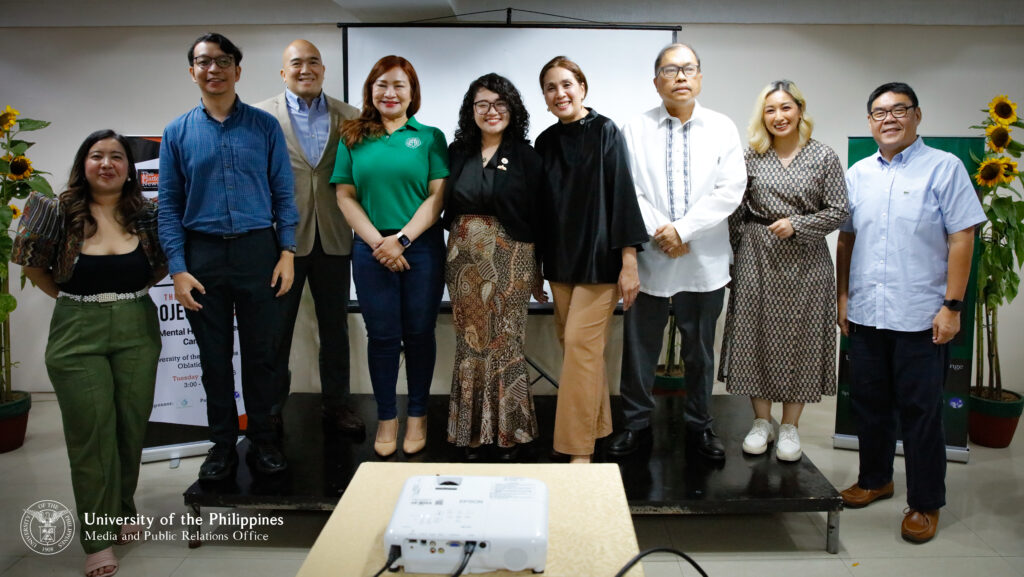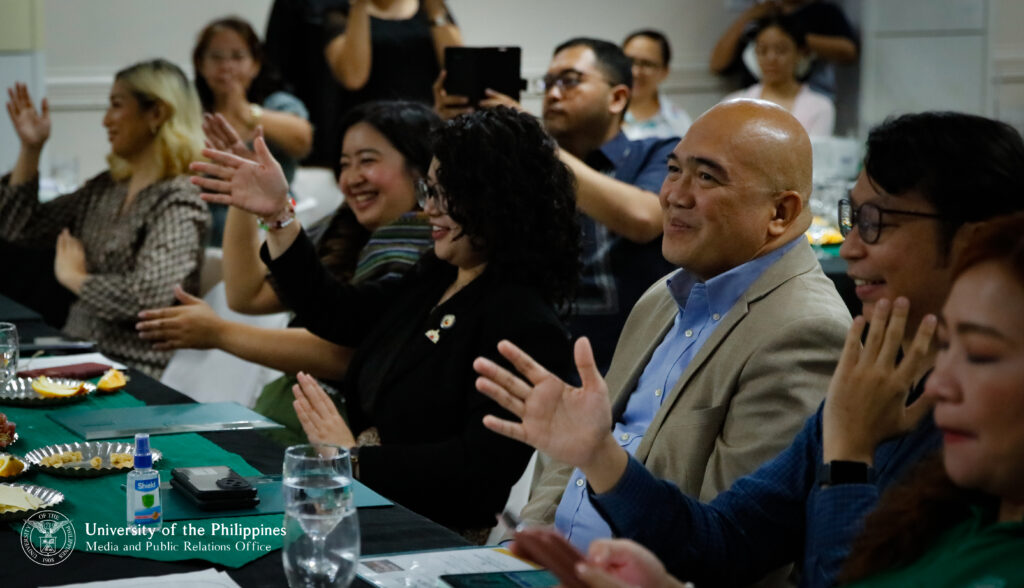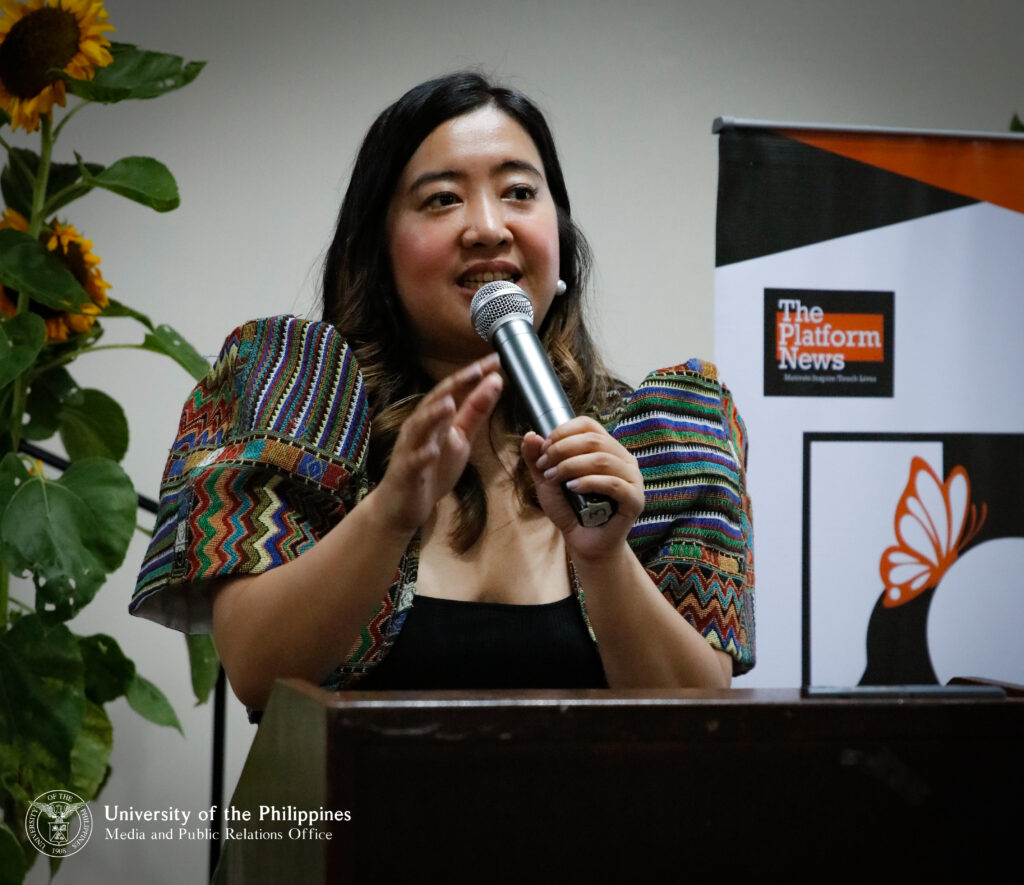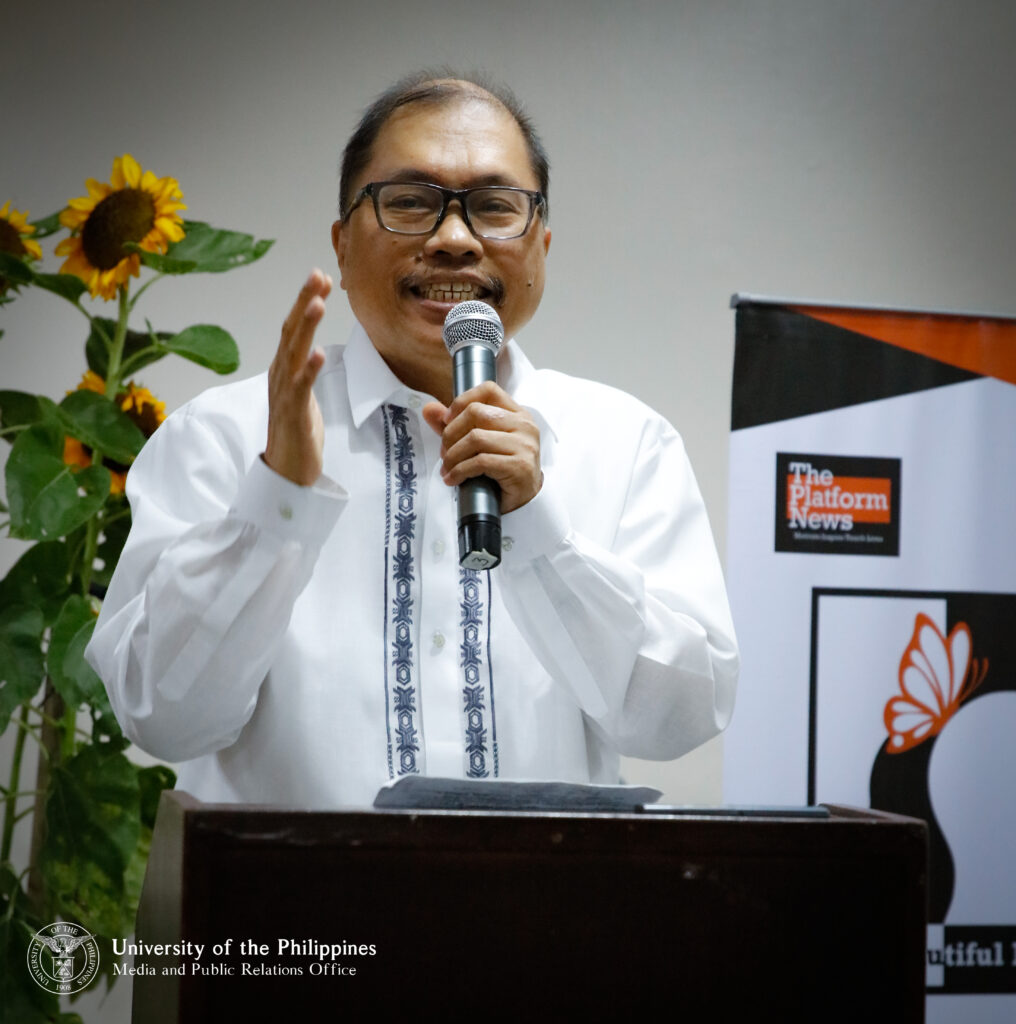
The Platform News PH Publisher Sheila G. Muescan spearheaded the launching of Project Stigma, a mental health awareness campaign in partnership with the University of the Philippines (UP) in ceremonies held at the UP Oblation Lounge (DATE).

The event opened with remarks from UP Assistant Vice President for Student Affairs Shari Nina Oliquino, followed by an inspirational video message from UP President Angelo A. Jimenez.
While congratulating the launch, Jimenez described Project Stigma as “the Filipino approach to Filipino reality,” and “the beginning of a conversation that mental health can no longer be sidelined.”

“This is not just about awareness; this is about a call to action that we must urgently answer. Mental health is one of the most misunderstood, feared, and stigmatized aspects of our society,” Jimenez said, as part of his reminder that Filipinos must “choose empathy in a world that chooses indifference.”
A short audio-visual of The Platform News was then presented.
Lawyer and resource speaker from the Public Health Unit (PHU) of the National Center for Mental Health (NCMH), Atty. Jose Marie P. Iporac, who highlighted the shortage of mental health professionals in the country, revealed that there is only one nurse for every 27 patients as of 2024.
With over 6,000 patients in admission, the NCMH faces an uphill battle, including “insufficient staffing and doctors moving to regional hospitals. Iporac also urged the Department of Health and the Department of Budget and Management to rally and address their concerns.

Meanwhile, Philippine Health Insurance Corporation (PhilHealth) Vice President Walter R. Bacareza assured that the agency has enough funds to cover mental health conditions. He noted PhilHealth’s 15 accredited “Konsulta” (now “Yakap”) centers, which offer an annual care package worth P9,000.00, and P16,000.00 for specialized mental health services.
Bacareza called on health advocates to “get our acts together, integrate mental health awareness in our educational system, and support Project Stigma.”
Philippine Psychiatric Association President Dr. Joan Mae Perez-Rifareal defined stigma as a “mark of disgrace or disapproval” that hinders affected individuals from seeking professional help. This stigma, she added, cultivates shame, depression, anxiety, and trauma, with the society often seeing them as “animals that are dangerous and violent.”
Perez-Rifareal rallied for the community to empathize, foster a more compassionate society, and avoid negative labels.
Project Stigma also drew support from the ADHD Society of the Philippines Board of Directors Ms. Dong Met-As, Kabataan Partylist Representative Atty. Renee Co and Department of the Interior and Local Government (DILG) Secretary Johnvic Remulla, Jr.
Met-As shared that ADHD affects 29% of Filipino children and 2.5% of adults. 30% of children with ADHD drop out of school, some adolescents succumb to substance abuse, and 25% of incarcerated individuals have ADHD.

“We are trying to get into the workplace as well, and to address the lack of medicine in drugstores to avoid the so-called Visita Iglesia-hopping from one pharmacy to another,” Aram added as part of their advocacy for early detection and the need for specialized training for teachers and parents.
Atty. Co, on the other hand, claimed that the country only has 1,000 licensed psychiatrists for its 110 million people. She called to end the stigma “through renewed efforts and combined strength through universal activities.”
“Let’s continue the discussion, the discourse on mental health, and ensure that the youth of today have the presence of mind and the will to confront mental health issues,” she added.
In closing, Muescan disclosed that what motivated her to launch Project Stigma through The Platform News PH is the prevalence of mental health issues among Filipino families.
“One to three members struggle with depression, anger management, and substance abuse. We also cannot turn our backs on the increasing number of youth committing suicide, the lack of doctors and health workers, and the proper facilities to address these problems.
“We need to take charge. We need to take action. Project Stigma is the start of us to break the silence and build a culture where understanding and compassion thrive.”